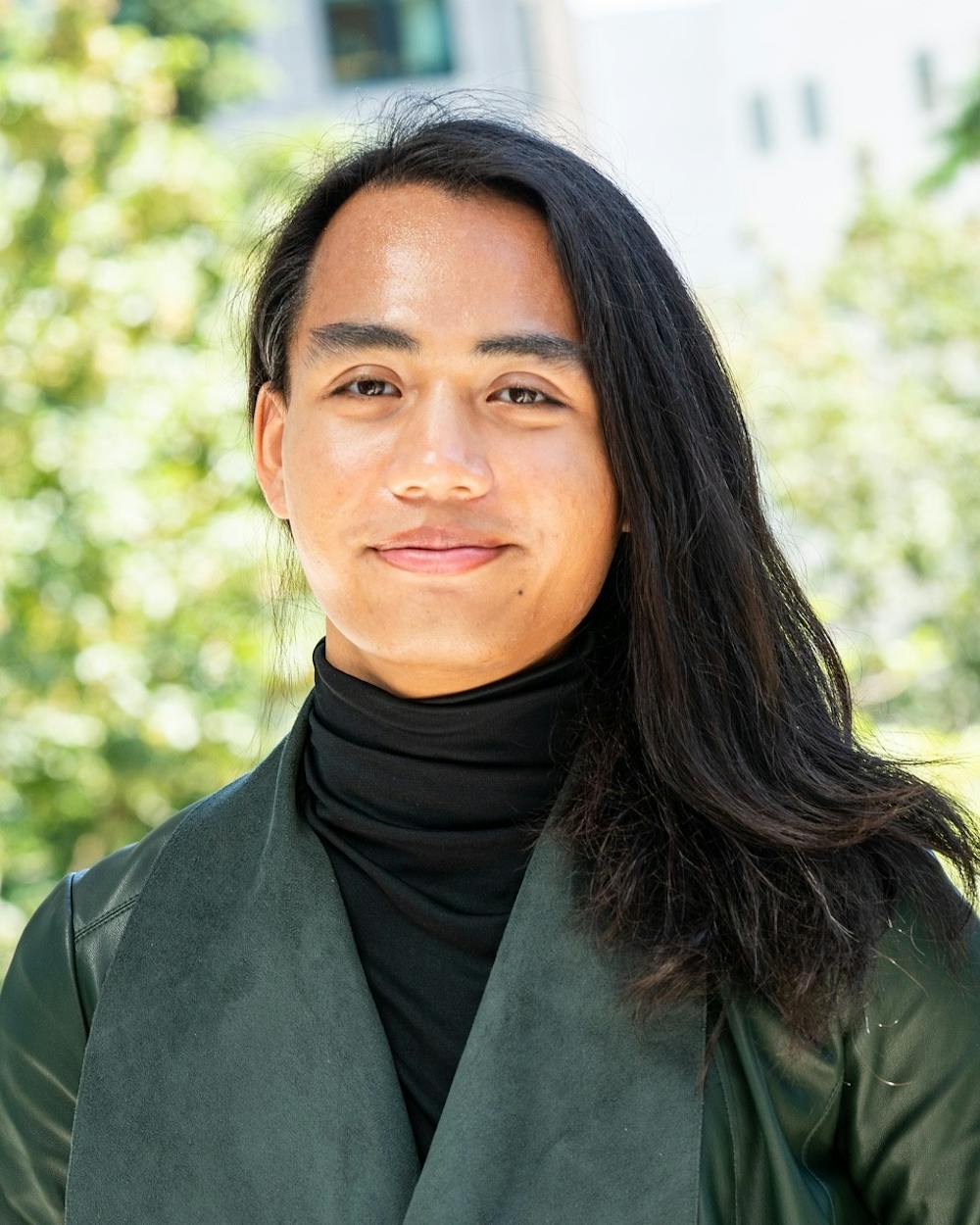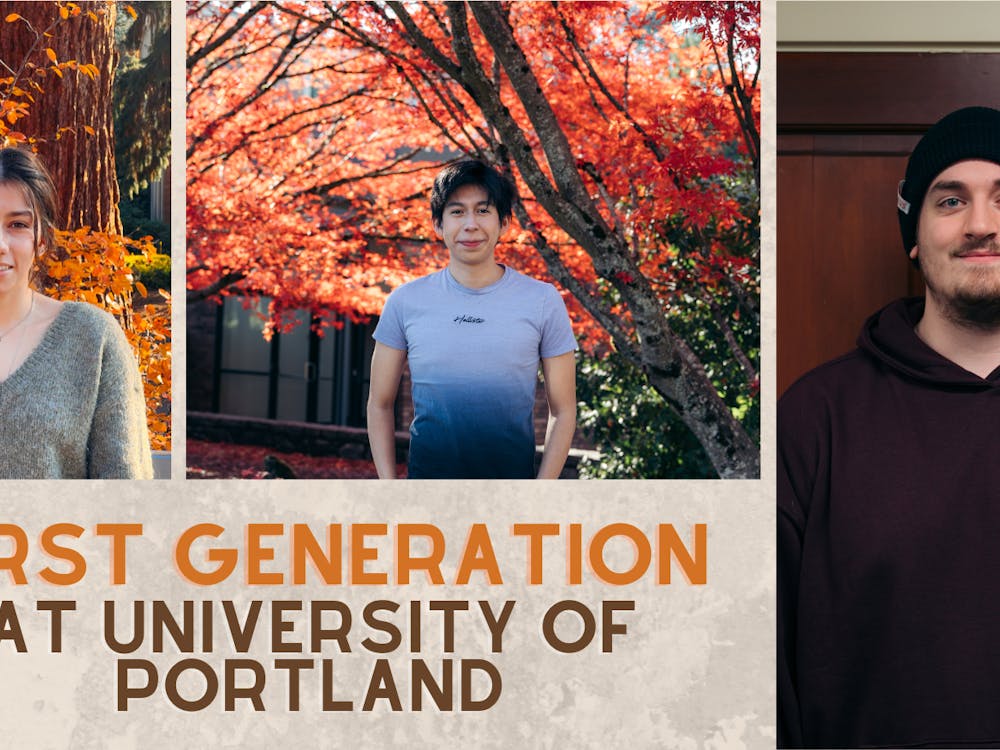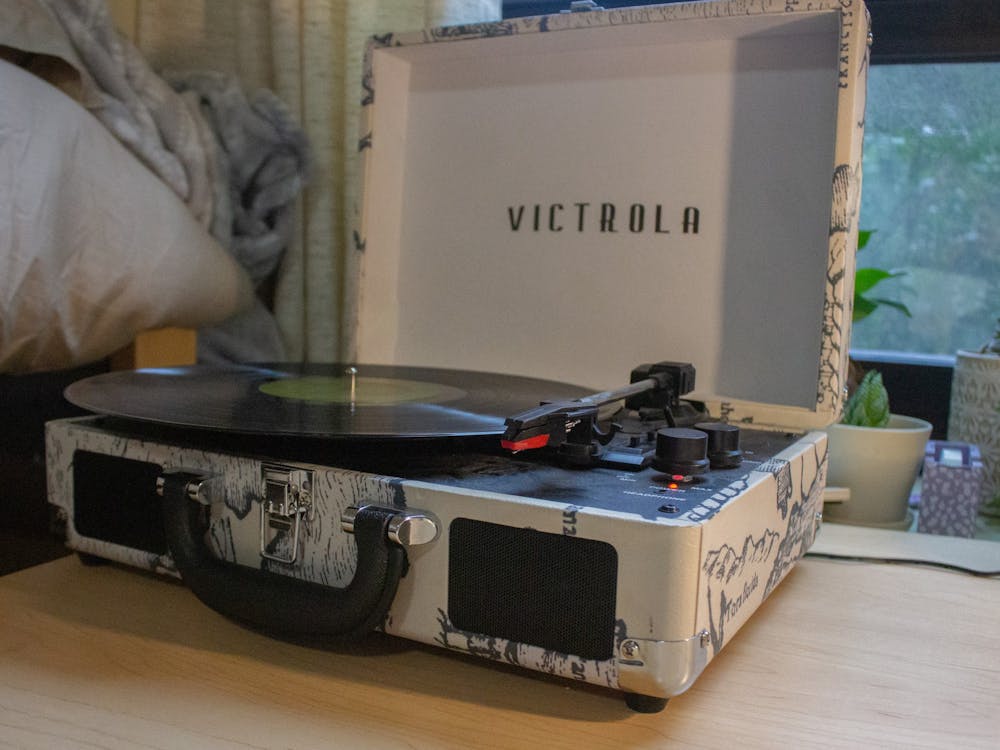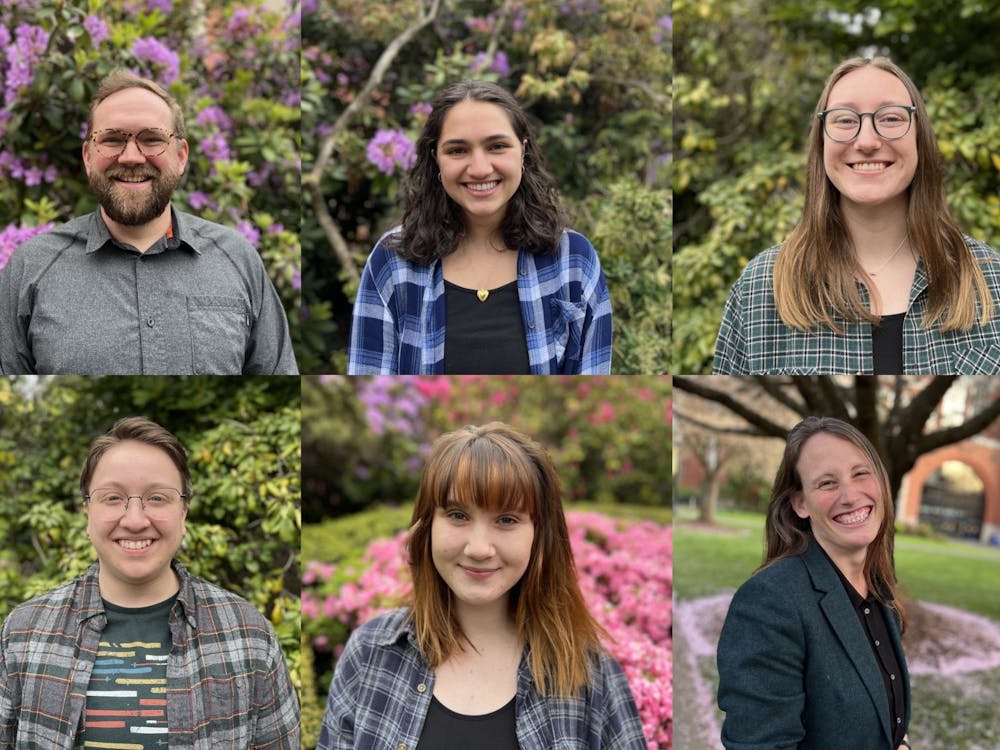Paris, France makes for a beautifully romanticized vacation. You can walk along the Seine, take pictures in front of the Eiffel Tower and visit the Louvre. Or, if you are junior Chivon Ou, who uses she/they pronouns, you can present on biomedical research.
Born and raised by Cambodian refugee parents, Ou’s upbringing greatly impacted their life in terms of how they treat others, their religious identity and career interests.
Ou is a nursing major at UP but their interest in healthcare spans beyond the major. In high school, they worked as a biomedical research intern. Continuing research this past summer, they had the opportunity to travel to Paris in October.
The summer research focused on trying to create a simpler and more accessible test for cancer. This was done by attempting to engineer a bacteria to grow only in the presence of cancer from a patient’s blood sample.
Ou and their peers flew to Paris to present their research at the iGEM Grand Jamboree 2022 Competition. They were one of 260 onsite and online teams from across the world representing different key science topics.
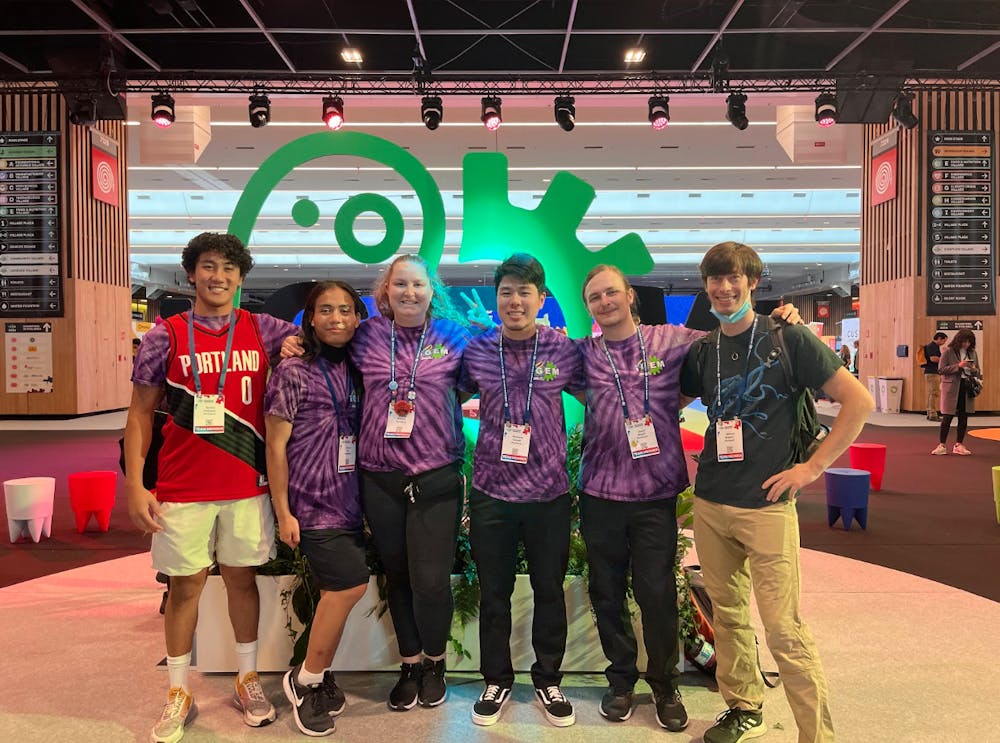
During the three-day competition they presented their project to passersby at their booth as well as to a small panel of judges behind closed doors to be considered for an award.
“While our team did not win an award, it was our first time doing this competition and we had lots of fun,” Ou said.
Related to their biomedical research, Ou’s natural desire to help others, especially their family, in part inspired them to pursue nursing at UP.
“I have seen firsthand the kind of disease conditions that come with a family of survivors and that inspires me to want to help populations that struggle with trauma,” Ou said.
Ou knows many people who struggled through their trauma growing up. They didn’t have the resources or support systems to show them that they deserve strength, comfort and safety or how to navigate their trauma. .
“Ou is always willing to help and is good at holding community and space for others,” Carolina Cortes, administrative assistant at the office of international education, diversity and inclusion said. “They are a very warm person to be around.”
Ou’s interest in healthcare also comes from their desire to give back to a community they feel has given so much to them. As a first generation college student, Ou is grateful for their teachers who encouraged them to take college-readiness courses and helped them navigate the college process.
They are still deciding what speciality of nursing they want to go into. However, their early experiences of often being the only queer person of color in spaces has made them want to pursue mental health care and trauma nursing to help others with similar struggles.
While biomedical research and nursing are just a few of Ou’s strong interests, they are far from defining them. Growing up, Ou struggled with discrimination, their religious identity and their gender and sexual orientation.
Raised in northwestern Hillsboro, they were used to being one of the few minorities in the spaces they entered.
“That’s been a huge part of my story growing up, questioning if I really belong in this town, this classroom and if it’s where I’m supposed to be,” Ou said.
From being bullied in preschool for not speaking English, to being made fun of in elementary school for the food they ate, trauma has been a significant part of their life for as early as they can remember. Even with these struggles, staying hopeful is something they have never lost.
“A huge part of my Cambodian identity is resilience,” Ou said. “Hearing stories of how people like my mom and dad survived the wilderness in Southeast Asia, the discrimination they faced when deciding where they would go as refugees and afterward in the workplace inspired me to say ‘If they can get through with all that, I can certainly get through anything.’”
Both of Ou’s parents are Cambodian Buddhists, but they held the philosophy of not wanting to impose their own ideas on Ou, encouraging them to find the answers to religion for themself.
Before arriving to UP, Ou did not want to be involved in faith at all because of past religious trauma and the preconceived notion that being LGBTQ+ and religious are mutually exclusive. However, when they found a community of supportive people at UP, everything changed. They converted to Catholicism here at UP and felt able to do that as a lot of students in their Rite of Christian Initiation of Adults (RCIA) were affirming of being Catholic and also LGBTQ+.
“It was really cool to see the contrast at UP with my experience growing up in elementary and middle school where anti-LGBTQ+ beliefs were rooted in that sort of dehumanizing religious belief that LGBTQ+ people are somehow less than human,” Ou said.
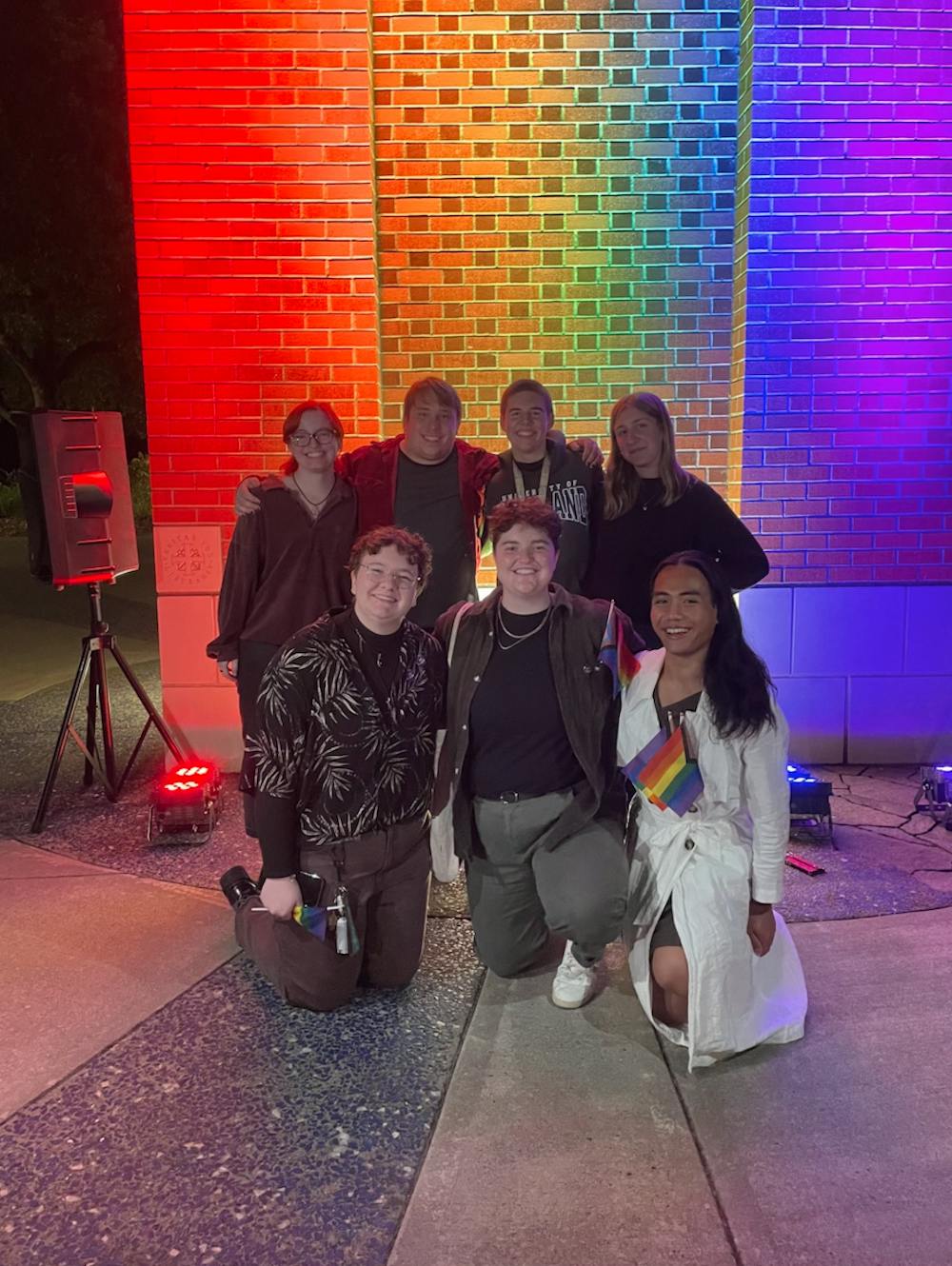
Ou is excited about some things UP is doing to support this group, such as the Health and Counseling Center starting an LGBTQ+ focused mental health support group. They also appreciated the Bell Tower Service where members of the UP community took a moment of silence for those not able to celebrate National Coming Out Day and to celebrate pride and queerness.
Moving forward, Ou mentions they want to pull more people into the Gender and Sexuality Partnership (GSP) who do not identify as LGBTQ+, emphasizing the importance and need for more allies.
“Ou is not really bound by conventional rules and is always questioning why certain barriers exist in their community and how to best solve it,” Cortes said. “They bring realistic optimism to everything they do.”
A central point of pride Ou has at UP is the community that they and their peers have gathered helping each other navigate who they are.
“We’ve created something really beautiful here and we are really owning what it means to be Catholic. From the Latin roots of the word, which means universal, we are all universally connected, united and all deserving of love.”
Ou has found community in a variety of groups on campus and holds all of them close. The international Cambodian students at UP are one specific community Ou is grateful to have connected with at UP.
“It’s definitely very spiritual and therapeutic for me to bond with the international Cambodian students on campus as a lot of times I don’t get the chance to bond with students from a Cambodian background,” Ou said.
Along with meeting the Cambodian international students, Ou speaks to the wonderful experiences they have had with Asian Americans and Pacific Islander students through APANO and API Forward that have added another layer to reconnecting with their culture.
“I am still trying to reclaim a lot of my Cambodian heritage, identity, and language skills,” Ou said.
As they are the Director of Diversity and Inclusion for GSP, a resident assistant at Haggerty and Tyson Halls, a writer who has submitted a poem to Writers Magazine and simultaneously involved in countless UP collaborations, Ou is always busy.
When asked about how to balance this all, Ou admits they are not perfect and that mental health and balance is still something they are struggling to navigate.
“Some things that are really consistent in helping me when I am struggling to find balance is just being around people who I know are affirming and that love and care for me,” Ou said. “[Meaning] the people at UP who I have the honor of calling my friends.”
Reclaiming their love of dance since college, including ballet, hip hop, high heels and pole dancing is one activity that has helped their mental health as well.
Although they still struggle personally with what label to put on their sexual orientation and gender identity, they are happy to have an affirming community of people at UP to support them.
Ou encourages students and adults who struggle to feel safe in their queerness or feel alone in their identity to reach out to clubs and find their people.
“We are here,” Ou said. “We are definitely here, and there is hope in the pockets of space my peers and I are trying to cultivate. My hope is that by more people finding connections here at UP, they’ll find a way to garner hope and pride in themselves.”
Sophia Truempi is a reporter for The Beacon. She can be reached at truempi22@up.edu.



